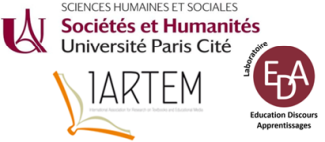Introduction
This contribution presents the outcomes of a research carried out by INDIRE on the theme of "representation of female". Previous research (Anichini, Giorgi, 2020) investigated the representation of the idea of the “foreigner” within textbooks and children's literature for use in Italian schools between the nineteenth and twentieth centuries. Now, the same sample of textbooks and children's literature was investigated with the aim of describing how some stereotypies have been formed and spread and are enduring over time, even within profoundly changed political and cultural contexts.
Some key concepts underline the research: 1. the definition of the concept of "imaginary," linking to a topic that is so central today and we can summarize as "representation of female”; 2. the concept of “educational media”, including the school itself as a "medium" with respect to the cultural content of a society; 3. the idea of stereotype, a "typing schemes", something very close to preconceptions through which the direct experience of things and people is filtered and lived: "The reality of communal life contains typing schemes in whose terms others are perceived and treated in direct encounters" (Berger Luckmann 1969, p. 53).
When we speak of "imaginary", we are referring to a theory that draws on a long cultural tradition. Since the 1920s emerges the idea of a symbolic dimension that springs from the real one and in turn feeds it, in a game of cross-references and connections that allows us to anticipate the more recent concept of "mediamorphosis" (Fidler, 2000). It is widely established that children's literature and textbooks contribute and have contributed to the defining opinions, attitudes and cultural habits of students. Textbooks, digital content, such as educational experiences conducted within the school are included in the category of "educational media" (Bruillard E., Anichini A., Baron G. L., 2019), and all of them play a very important role in education.
Methodology
Starting from these assumptions, we tried to trace inside some textbooks that are part of a fund of INDIRE heritage those symbolic systems that define the stereotype of “female”. The analysis was conducted according to grid and taking into account the linguistic contents and also the iconic representation present in the textbooks. Language contributes, in fact, to the creation of "zones of meaning", "immense edifices of symbolic representations that seem to tower over everyday reality like gigantic presences belonging to another world" (Berger and Luckmann, 1969 p. 64). Like words, also images outline a set of meanings that refer to a precise interpretation of the category in question and provide a well-defined, more or less explicit representation of it. For analising materials, we used some grids elaborated according to a literary review on the theme and empirically adjusted during the research path.
References
Anichini, A., Giorgi, P. (2020): Lo straniero di carta, Roma, Tab Edizioni
Berger P. L., Lukmann T., (1969): La realtà come costruzione sociale, Bologna, Il Mulino
Biemmi I., (2017): Educazione sessista. Stereotipi di genere nei libri delle elementari, Rosenberg & Sellier
Bruillard É., Anichini A. & Baron G. L. (2019): Changing media – changing schools? IARTEM 2017, 14th International Conference on Research on Textbooks and Educational Media. University Lusófona, Lisbon, Portugal, 27–29 September 2017
Fidler, R. (2000): Mediamorfosi. Comprendere i nuovi media: Roma, Guerini e Associati
Tisserant, P., Wagner, A.-L. (dir.) (2008): Place des stéréotypes et des discriminations dans les manuels scolaires. Rapport Final Réalisé pour le compte de la Haute Autorité de Lutte contre les Discriminations et pour l'Égalité. Université de Metz

 PDF version
PDF version
